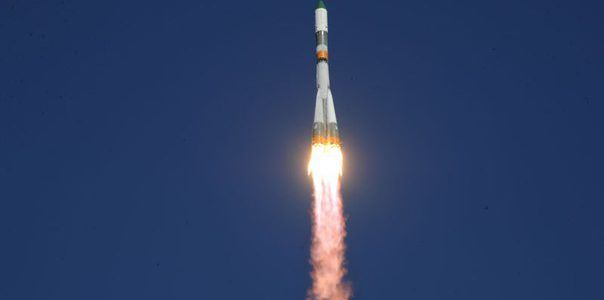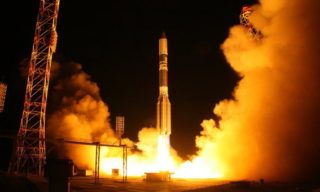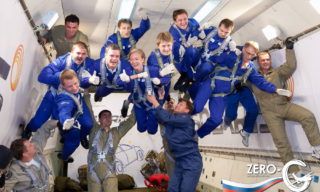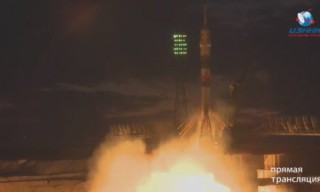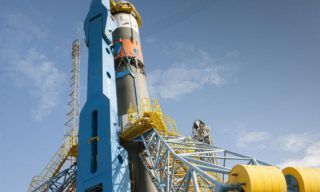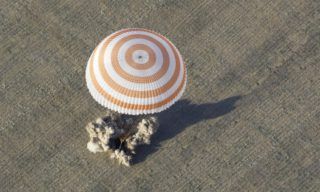Today at 10.09, Moscow time, Russian space industry launching crews successfully launched Soyuz 2.1a booster with Progress M-25M cargo vehicle #31 launchpad of Baikonur spaceport.
It was the first time this modernized booster was used for Progress cargo vehicle launch. Up to the present time all cargo vehicles going to the ISS have been launched with the help of Soyuz-U boosters only.
At 10.18 cargo vehicle nominally separated from the third stage of the booster. According to ballistic and navigational support specialists Progress M-25M will dock with Pirs docking module of the ISS at 16.09, Moscow time, – MCC spokesman stated.
The vehicle will deliver to the ISS oxygen, foodstuffs, parcels for the crew and equipment for scientific experiments.




